#lucy beale
Text
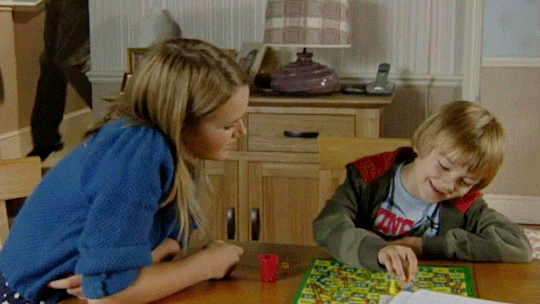
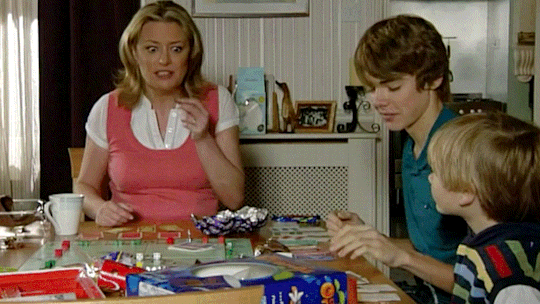
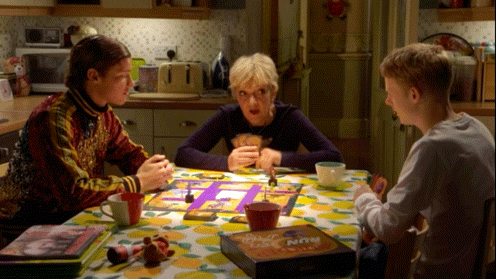
Bobby’s love language is board games ♟️
+ Bonus:

#eastenders#bobby beale#lucy beale#peter beale#jane beale#freddie slater#jean slater#bernie taylor#ee parallels#myedit*#editingeastenders
21 notes
·
View notes
Text
I love how eight years on, Lucy's death continues to play such a large and integral part of the show; most deaths get mentioned every once in a while, or even every few years. But Lucy her death is still so integral to the show after all this time, and their still finding ways to bring it back to that.
4 notes
·
View notes
Text
youtube
How Do You Explain A 9 Year Absence To Your Daughters?
Walford REEvisited
EastEnders
#EastEnders#Walford REEvisited#The Knights#Cindy Beale#Gina Knight#Anna Knight#George Knight#The Beales#Lucy Beale#Peter Beale#Steven Beale
2 notes
·
View notes
Text


Simon Russell Beale and Lucy Parham in York last night for Rêverie.
x
10 notes
·
View notes
Text

Lucy doesn't care about designer/name brands. The majority of her clothes are made by her, gotten from a vintage shop, or bought from small designers/businesses. Same goes with perfumes. She mostly owns knock-offs because she doesn't worry about the name on it, and most of the time she buys them because she thinks the bottle is pretty.
Though, she does really like the Marc Jacobs 'Daisy Love', but she won't buy it for herself. However, if someone were to gift her a bottle for her birthday or Christmas, she'd be ecstatic.
#i saw a bottle of it at beal's today and it was $60#and that's the DISCOUNTED price#and lucy is not wasteful with money by any means#so she's definitely not spending that on herself#but she'd be in heaven if someone gifted it to her#i did buy myself a teeny tiny $20 bottle of versace dylan blue though#headcanon
3 notes
·
View notes
Text
Did you realize that most of the "celebs crush's" or "the most beautiful woman" type video on TikTok always have the same woman?
Don't get me wrong, Cate Blancett, Sarah Paulson, Florence Pugh they are all stunning and seems to be really nice people but, speaking only on looks, where is Jennifer Connelly, Jennifer Beals, Shay Mitchell, Lucy Liu,Halle Berry, Kelsey Chow...? I could go on and on.
I know there's some names that most of the baby gays don't know but c'mon, do your research
Please don't take this serious, it's just a silly commentary
#lesbian#wlw#cate blanchett#sarah paulson#florence pugh#jennifer beals#jennifer connelly#kelsey chow#halle berry#lucy liu#shay mitchell
6 notes
·
View notes
Text
for a second i lived in a world where lucy beale did not exist
#sat here going there's an eastenders character called lucy 🤨 i don't know her#i don't think i actually watched who killed lucy beale though#in defense
1 note
·
View note
Text
2023 BAFTA Scotland Awards - Backstage


GLASGOW, SCOTLAND - NOVEMBER 19: Lauren Lyle and Patch Bell with the Audience Award and the Actress Television Award backstage during the 2023 BAFTA Scotland Awards held at the DoubleTree by Hilton Glasgow Central on November 19, 2023 in Glasgow, Scotland. (Photo by Antony Jones/BAFTA/Getty Images for BAFTA)

Lauren Lyle and Lucy Halliday attend the 2023 BAFTA Scotland Awards Dinner held at the DoubleTree by Hilton Glasgow Central on November 19, 2023 in Glasgow, Scotland. (Photo by Jeff Spicer/BAFTA/Getty Images for BAFTA)

Lauren Lyle and Dougray Scott backstage during the 2023 BAFTA Scotland Awards held at the DoubleTree by Hilton Glasgow Central on November 19, 2023 in Glasgow, Scotland. (Photo by Carlo Paloni/BAFTA via Getty Images)

Hamza Yassin, Lauren Lyle, Banjo Beale and Steven Cree backstage during the 2023 BAFTA Scotland Awards held at the DoubleTree by Hilton Glasgow Central on November 19, 2023 in Glasgow, Scotland. (Photo by Carlo Paloni/BAFTA via Getty Images)

Lauren Lyle with the Actress Television Award for 'Karen Pirie' speaks to Lawrence Chaney (L) at the 2023 BAFTA Scotland Awards, held at the DoubleTree by Hilton Glasgow Central, on November 19, 2023 in Glasgow, Scotland, U.K (Photo by John Clark/BAFTA via Getty Images)
After Party

Lauren Lyle and guest attend the 2023 BAFTA Scotland Awards After Party held at the DoubleTree by Hilton Glasgow Central on November 19, 2023 in Glasgow, Scotland. (Photo by Antony Jones/BAFTA/Getty Images for BAFTA)

Morven Christie and Lauren Lyle attend the 2023 BAFTA Scotland Awards After Party held at the DoubleTree by Hilton Glasgow Central on November 19, 2023 in Glasgow, Scotland. (Photo by John Clark/BAFTA via Getty Images)
41 notes
·
View notes
Note
for the director's cut:
“You look like a sexy vampire,” Chloe says, grasping onto Helena’s bicep because she has absolutely no sense of personal space. “Like you’ve been around since the 1800’s, seducing people and drinking blood and generally lounging on, like, deep red velvet cushions.”
Helena laughs, and someone next to their table makes a slightly strangled sound.
Kate looks over to see Myka, who must have just walked up. She’s staring a Helena with a weird look on her face, but as soon as Kate takes a step towards her, she gives herself a little shake and focuses on Kate, the weirdness completely vanished. “Hey, Whistler,” she says, and Kate grins.
“Hey, Bering.”
Their hug is quick, because neither of them are naturally touchy. Myka’s hair is curlier than Kate’s ever seen it, like she’s finally figured out how to condition it properly, and she’s dressed the way she always is, in dark jeans and a simple purple cotton t-shirt. She looks like she gave absolutely no thought to being on TV, and Kate loves her for it.
Okay I have several Director's Cut asks about this section of the Ultimatum which I love! Here's this one.
In general, I love love LOVED writing this scene. I've never written Helena, Myka, or Chloe before, so it was really fun and challenging to simultaneously:
Pull them from their canons (Warehouse 13 and Pitch Perfect) and drop them into this one while remaining recognizable
Make them work as people Kate would actually be friends with
Fit into the conventions of The Ultimatum, aka fulfill the purposes of this brunch for the show
Move my fic's plot forward
Create tension for Kate and Lucy's romance arc
Show Kate and Lucy something new about each other
Show a new side of both Kate and Lucy to the readers
So that said, now let's play through this section. The fic is in black, my commentary is in purple.
“You look like a sexy vampire,” Chloe says, grasping onto Helena’s bicep because she has absolutely no sense of personal space. [Chloe Beale has negative zero conception of personal space. Doesn't she lick Beca's nose at some point? They basically make out the first night. This is just 100% canon Chloe and I love her. I also like thinking about some similarities between Beca and Helena, in terms of pasty-ass white girls with dark hair and enormous emotional walls.] “Like you’ve been around since the 1800’s, seducing people and drinking blood and generally lounging on, like, deep red velvet cushions.” [Obviously this is a joke/nod to Helena being a time traveler from the 1800s, and also I think she'd make a very sexy vampire. She HAS been seducing people since the 1800's and she looks like it! She'd do well against some blood red velvet cushions and I think Myka for one would like to see it]
Helena laughs, and someone next to their table makes a slightly strangled sound. [It's fun to find new ways to introduce characters! And in this setting, people keep arriving, so it was nice to say something other than "Now Myka walks in." I don't think Myka knew Helena would be here today, so not only is she (a) seeing Helena in the flesh for the first time in who knows how long, she's also (b) seeing Helena ON TELEVISION. This whole section is really just me playing with Helena wanting to take a bite out of Myka and Myka being desperately uncomfortable with how desperately she wants that to happen, while also trying--AND FAILING--to conceal all of it from Kate. Meanwhile Helena is like, Katie can know we fucked, darling, I'm not ashamed.]
Kate looks over to see Myka, who must have just walked up. She’s staring a Helena with a weird look on her face, but as soon as Kate takes a step towards her, she gives herself a little shake and focuses on Kate, the weirdness completely vanished. [Myka is good at focusing through absolutely wild shit going on] “Hey, Whistler,” she says, and Kate grins.
“Hey, Bering.” [SOMEONE needs to call Kate "Whistler" in this fic and I'm glad it got to be Myka! I feel like they would have called each other last names in college to mark themselves as different from the other sorority girls and I like that.]
Their hug is quick, because neither of them are naturally touchy. [Myka only touches HELENA] Myka’s hair is curlier than Kate’s ever seen it, like she’s finally figured out how to condition it properly, [I hate her straight hair fyi] and she’s dressed the way she always is, in dark jeans and a simple purple cotton t-shirt. She looks like she gave absolutely no thought to being on TV, and Kate loves her for it. [Myka's fashion sense is so funny. Everyone else on that show is so dated in what they wear -- the LONG TANK TOPS AND TINY VESTS, CLAUDIA, FOR THE LOVE OF GOD -- but for Myka it's like, cotton t-shirt and jeans of the week. I respect this. I wonder what Helena thinks about it.]
11 notes
·
View notes
Text
By: Lucy Bannerman, James Beal, Eleanor Hayward
Published: Apr 10, 2024
The report should be the final nail in the coffin of Gids, the clinic that told thousands of children they were transgender
In 2009 the NHS’s gender identity development service (Gids) saw fewer than 50 children a year. Since then demand has increased a hundredfold, with more than 5,000 seeking help in 2021-22.
The sudden increase has gone hand in hand with the adoption of a model of “gender-affirming” care, which puts children on a life-altering path of hormone treatment. Services have been left overwhelmed, with vulnerable young people clamouring for medical interventions to help them change gender — despite a lack of evidence over the long-term effects.
It was against this backdrop that Dr Hilary Cass was commissioned in 2020 to examine the state of NHS services for children identifying as trans. Her final report, published on Wednesday, delivers a damning verdict on the medical path thousands of children have been sent down. It marks a turning point in years of bitter debate over how to help this distressed group of young people, confirming a shift towards a holistic model that takes into account the wider social and mental health problems driving the rise in demand.
Gen Z and online porn
The Cass report shines a light on the biggest unanswered question over transgender healthcare: why are so many Gen Z women suddenly wanting to change gender?
Cass paints an alarming picture of an anxious and distressed generation of digitally savvy young women and girls, who not only are more exposed to online pornography and the wider problems of the world than any previous generation but also consume more social media and have lower self-esteem and more body hang-ups than their male peers.
When Gids opened in 1989, it treated fewer than ten people each year, mostly males with a long history of gender distress. In 2009 it treated 15 adolescent girls. By 2016 that figure had shot up to 1,071.
Cass concludes that such a sudden rise in such a short time cannot be explained alone by greater acceptance of trans identities, which “does not adequately explain” the switch in patient profiles from predominantly male to female. She also says greater investigation of the “consumption of online pornography and gender dysphoria is needed”, pointing to youngsters’ increasingly early exposure to “frequently violent” online material that can have a harmful impact on their self- esteem and body image.
Gen Z is defined as those born between 1995 and 2009. Rather than focusing on the issue of gender in isolation, Cass looked at the context in which adolescents today, who have “grown up with unprecedented online access”, are experiencing such a disproportionate crisis over their gender.
“Generation Z is the generation in which the numbers seeking support from the NHS around their gender identity have increased, so it is important to have some understanding of their experiences and influences,” she writes. “In terms of broader context, Generation Z and Generation Alpha (those born since 2010) have grown up through a global recession, concerns about climate change and most recently the Covid-19 pandemic. Global connectivity has meant that as well as the advantages of international peer networks, they are much more exposed to worries about global threats.”
The report also focuses on 2014, when female referrals to Gids accelerated. Although this is not mentioned, 2014 was the year that CBBC, for example, broadcast I Am Leo, a video-diary-style documentary, to an audience of to 6 to 12-year-olds, showing the positive personal journey of a child who transitioned from female to male.
Throughout almost 400 pages, Cass argues that the gender-related issues of young patients should be treated in the same context as the wider mental health issues facing their entire generation. “The striking increase in young people presenting with gender incongruence/dysphoria needs to be considered within the context of poor mental health and emotional distress among the broader adolescent population, particularly given their high rates of co-existing mental health problems and neurodiversity.” Cass calls for more research into the “complex interplay” between these issues and a teenager’s sudden desire to change gender.
Lack of evidence for medical pathway
Rather than affirming children’s gender identity with medical treatment, the report calls for a holistic approach that examines the causes of their distress. It finds that, despite being incorporated into medical guidelines around the world, the use of “gender-affirming” medical treatment such as puberty blockers is based on “wholly inadequate” evidence. Doctors are cautious when adopting new treatments, but Cass says “quite the reverse happened in the field of gender care for children”, with thousands of children put on an unproven medical pathway.
Cass says gender care is “an area of remarkably weak evidence” and that results of studies “are exaggerated or misrepresented by people on all sides of the debate”. She adds: “The reality is that we have no good evidence on the long-term outcomes of interventions to manage gender-related distress.”
The report finds that treatment on the NHS since 2011 has largely been informed by two sets of international guidelines, drawn up by the Endocrine Society and the World Professional Association of Transgender Healthcare (WPATH), but that these lack scientific rigour. The WPATH has been “highly influential in directing international practice, although its guidelines were found by the University of York’s appraisal to lack developmental rigour and transparency”, Cass says.
The report says the NHS must work to improve the evidence base.
Mental health
Mental health issues could be presenting as gender-related distress. Children and young people referred to specialist gender services have higher rates of mental health difficulties than the general population. This includes rates of depression, anxiety and eating disorders. Some research studies have suggested transgender people are three to six times more likely to be autistic than the general population, with age and educational attainment taken into account.
Therefore, the report says that the striking increase in young people presenting with gender dysphoria needs to be considered within the context of rising levels of poor mental health.
The increase in gender clinic patients “has to some degree paralleled” the deterioration in child and adolescent mental health, it finds. Mental distress, the report says, can present through physical manifestations, such as eating disorders or body dysmorphic disorders. Clinicians were often reluctant to explore or address co-occurring mental health issues in those presenting with gender distress, the report finds. This was because gender dysphoria was not considered to be a mental health condition.
The report finds that, compared with the general population, young people referred to gender services had higher rates of neglect; physical, sexual or emotional abuse; parental mental illness or substance abuse; exposure to domestic violence; and loss of a parent through death or abandonment.
Puberty blockers
The report says there was “no evidence” puberty blockers allowed young people “time to think” by delaying the onset of puberty — which was the original rationale for their use. It finds the vast majority of those who start puberty suppression continued on to cross-sex hormones, particularly if they started earlier in puberty.
There was insufficient and inconsistent evidence about the effects of puberty suppression on psychological or psychosocial health, it says, and some young females had a worsening of problems like depression and anxiety.
Cass says there is “some concern” that puberty blockers may actually change “the trajectory of psychosexual and gender identity development”.
Her report warns that blocking the chronological age and sex hormones released during puberty “could have a range of unintended and as yet unidentified consequences”.
It describes adolescence as a time of “identity development, sexual development, sexual fluidity and experimentation”. The report says “blocking” this meant young people had to understand identity and sexuality based only on their discomfort about puberty and an early sense of their gender. Therefore, it adds, there is “no way of knowing” whether the normal trajectory of someone’s sexual and gender identity “may be permanently altered”.
Brain maturation may also be “temporarily or permanently disrupted” by the use of puberty blockers, it says. This could have a significant impact on a young person’s ability to make “complex risk-laden decisions”, as well as possible long-term neuropsychological consequences.
The report highlights the “concern” of young people remaining on puberty blockers into adulthood — sometimes into their mid-twenties. This is partly because some “wish to continue as non-binary” and partly because of ongoing gender indecision, the report says.
Cass adds: “Puberty suppression was never intended to continue for extended periods.”
The report finds young adults who had been discharged from Gids “remained on puberty blockers into their early to mid twenties”. A review of audit data suggested 177 patients were discharged while on puberty blockers.

Cass says the review “raised this with NHS England and Gids”, citing the unknown impact of use over an extended period. “The detrimental impact to bone density alone makes this concerning”, the report adds.
A Dutch study originally suggested that puberty blockers might improve psychological wellbeing for a narrow group of children with gender issues.
Following this, the practice “spread at pace to other countries” and in 2011 the UK trialled the use of puberty blockers in an early intervention study.
The results were not formally published until 2020, at which time it showed there was a lack of any positive measurable outcomes. It also found that 98 per cent of people had proceeded to take cross-sex hormones.
Despite this, from 2014 puberty blockers moved from a research-only protocol to being available in routine clinical practice. “The rationale for this is unclear,” the report says.
Puberty blockers were then given to a wider range of adolescents, it says, including patients with no history of gender issues before puberty and those with neurodiversity and complex mental health issues. Clinical practice, Cass found, appeared to have “deviated” from the parameters originally set.
Overall, the report concludes there was a “very narrow indication” for the use of puberty blockers in males to stop irreversible pubertal changes, while other benefits remained unproven.
It says there were “clearly lessons to be learnt by everyone”.
Social transition
The report concludes it was “possible” that social transition, including the changing of a child’s name and pronouns, may change the trajectory of their gender development. It finds “no clear evidence” social transitioning in childhood has any positive or negative mental health effects, but that children who socially transitioned at an earlier age were more likely to proceed to medical treatment. A more cautious approach to social transition needs to be taken for children than for adolescents, it concludes.
The review also heard concerns from “many parents” about their child being socially transitioned and affirmed in their expressed gender without their involvement. Draft government guidance, published in December, stated that schools should not accept all requests for social transition and should involve parents in any decision that is made.
Despite this, there has been evidence of schools ignoring ministers and allowing children to change gender behind their parents’ backs.
The report makes clear that “parents should be actively involved in decision making” unless there are strong grounds to believe that it may put the child at risk.
It also finds that social debates on trans issues led to fear among doctors and parents, with some concerned about being accused of transphobia.
The interim report, from 2022, had classed social transition as “not a neutral act”. The full report explains that it is an “active intervention”, because it may have significant effects on a young person’s psychological functioning and longer-term outcomes.
In a strong warning to schools, the report describes the need for “clinical involvement” in the decision-making process on social transitioning. It adds: “This is not a role that can be taken by staff without appropriate clinical training.”
The report concludes that maintaining flexibility is key among those going down a social transition route and says a “partial transition”, rather than a full one, could help.
In decisions about whether to transition prepubescent children, families should be seen “as early as possible by a clinical professional”.
Rogue private clinics
Long waiting lists for NHS care mean distressed children are turning to private clinics or resorting to “obtaining unregulated and potentially dangerous hormone supplies over the internet”, the report says.
Some NHS GPs have then felt “pressurised to prescribe hormones after these have been initiated by private providers”, and Cass says this should not happen.
The report also urges the Department of Health to consider new legislation to “prevent inappropriate overseas prescribing”. This is intended to tackle a loophole which means that, despite the NHS banning the use of puberty blockers last month, children can still access them from online clinics such as GenderGP, which is registered in Singapore.
Detransitioning
Cass says some of those who have been through medical transitions “deeply regret their earlier decisions”. Her report says the NHS should consider a new specialist service for people who wish to “detransition” and come off hormone treatments. She says people who are detransitioning may be reluctant to return to the service they had previously used.
NHS numbers
The report recommends that the NHS and Department of Health review current practice of issuing new NHS numbers to people who change gender.
Cass suggests that handing out new NHS numbers to trans people means they risk getting lost in the system — making it harder to track their health histories and long-term outcomes.
The review says that this has had “implications for safeguarding and clinical management of these children”, �� for example, the type of screening that they are offered.
Toxic debate
Cass has called for an end to the “exceptionally toxic” debates over transgender healthcare after she was vilified online while compiling her review. In a foreword to her 388-page report, the paediatrician said that navigating a culture war over trans rights has made her task over the past four years significantly harder.
She warned that the “stormy social discourse” does little to help young people, who are being let down by a lack of research and evidence. Cass added: “There are few other areas of healthcare where professionals are so afraid to openly discuss their views, where people are vilified on social media, and where name-calling echoes the worst bullying behaviour. This must stop.
“Polarisation and stifling of debate do nothing to help the young people caught in the middle of a stormy social discourse, and in the long run will also hamper the research that is essential to finding the best way of supporting them to thrive.”
Cass said: “Finally, I am aware that this report will generate much discussion and that strongly held views will be expressed. While open and constructive debate is needed, I would urge everybody to remember the children and young people trying to live their lives and the families/ carers and clinicians doing their best to support them. All should be treated with compassion and respect.”
The recommendations
Data collection
Gender identity clinics should offer their data to NHS England for review, and more research should be conducted on the impact of psychosocial intervention — such as therapy — and the use of masculinising and feminising hormones, such as testosterone and oestrogen. Cass recommended that the NHS should also consider data from private clinics.
Puberty blockers and hormone treatment
Cass recommended research to establish the long-term impact of puberty blockers, which is expected to start by December.
Assessment of other conditions
Cass said that children arriving at gender identity services should be screened for conditions such as autism and other neurodevelopmental conditions.
Criteria for medical treatment
When treating children with gender dysphoria, only those who have experienced “longstanding gender incongruence” will be able to get medical treatment. Even then, this will only be available — with “extreme caution” — for over 16s.
A holistic approach
Before any medical intervention, Cass recommends that children should be offered fertility counselling and “preservation” by specialist services. This formed part of a more “holistic” approach to gender identity services. Cass suggested the creation and implementation of a national framework and infrastructure for gender-related care.
Growing into adulthood
The review advised that follow-through services for 17 to 25-year-olds should be established to ensure a continuity of care and support when children grow into adulthood.
Detransitioners
The report proposed that NHS England should “ensure there is provision for people considering detransition”, while recognising that they may not wish to attend services that assisted in their initial gender transition.
[ Via: https://archive.today/7GxDe ]
#Hilary Cass#Dr. Hilary Cass#Cass report#Cass review#medical corruption#medical scandal#medical malpractice#gender thalidomide#gender lobotomy#ideological capture#ideological corruption#gender affirming care#gender affirming healthcare#gender affirmation#queer theory#gender identity ideology#intersectional feminism#gender ideology#detrans#detransition#puberty blockers#wrong sex hormones#cross sex hormones#religion is a mental illness
12 notes
·
View notes
Text

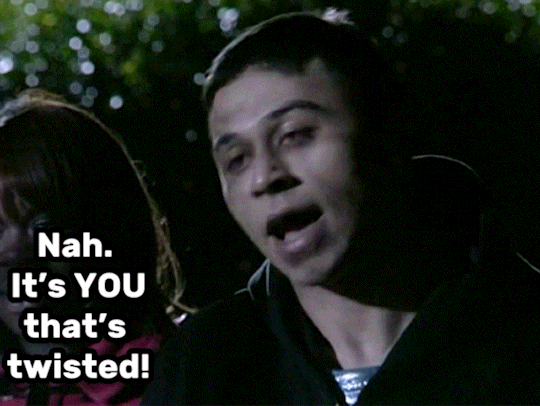




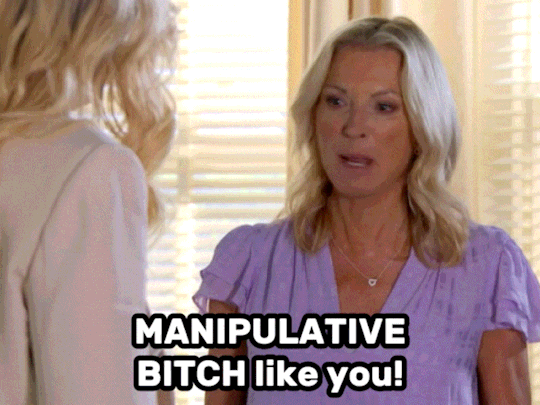


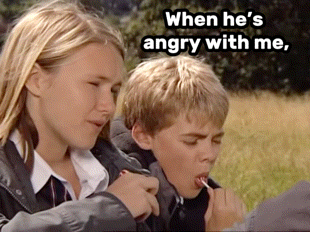
Lucy Beale & Cindy Williams | Like Mother, like Daughter
#eastenders#lucy beale#cindy beale#cindy williams#editingeastenders#myedit*#ee parallels#ee spoilers
12 notes
·
View notes
Text
I know people hated Robert being sent to prison, but I way preferred that to Emmerdale killing him off, legacy character’s are rare; I hated that Eastenders killed off Lucy and Steven, two legacy characters, what a waste of over 20+ years of on screen character development. They can always bring Robert back, maybe with a recast, I’d really be down for them to reboot his character quite frankly.
#emmerdale#eastenders#robert sugden#lucy beale#steven beale#look at me talking about soaps#i haven't in YEARS#i used to be in the Emmerdale fandom obsessively#that christ i managed to snap out of it#yeah I'd love them to bring back Andy and Robert even recast them#let's have a Sugden reboot
7 notes
·
View notes
Text
She doesn't know it was Bobby does she?
4 notes
·
View notes
Text

Lucy Parham and Simon Russell Beale at the Barbican on Sunday November the 26th for Elégie – Rachmaninoff, A Heart in Exile
6 notes
·
View notes
Text
DA Movie 3 Cast
(breaking this down so it's easier to figure out)
Confirmations as IN:
From the TV show: Robert, Cora, Mary, Edith, Bertie, Tom, Isobel, Dickie, Carson, Mrs Hughes, Anna, Bates, Thomas, Baxter, Molesley, Mrs Patmore, Andy, Daisy, Harold
From the films: Guy
New additions played by: Joely Richardson, Alessandro Nivola, Simon Russell Beale, Arty Froushan
(We know that Sybbie and George will appear thanks to the child actors' parents posting on Instagram.)
Who is NOT listed:
From the TV show who also appeared in at least one film: Matthew Goode (Henry Talbot), Paul Copley (Mr Mason), Samantha Bond (Rosamund) (and of course Maggie but I don't think Violet is appearing as a ghost)
From the films: Tuppence Middleton (Lucy), Imelda Staunton (Maud - but she already confirmed this)
Gonna be pedantic, but it's actually not quite proper grammatically to say "many other fan favorites" after the "exciting new additions", as it implies that somehow the fan favorites are new additions, but I assume does this mean someone will cameo. But also not like Paul didn't play Harold in the TV show lol.
Tuppence Middleton is filming The Forsyte Saga this summer, so I assume she's too busy to be in the film overall, but maybe Lucy will have a cameo? Don't know what this spells for Henry, but we'll see.
Also not listed is Shirley MacLaine is also not listed as Martha, Cora and Harold's mother in the TV show.
Let the speculations begin!
EDIT: I left off Dr Clarkson! He is not listed.
16 notes
·
View notes








